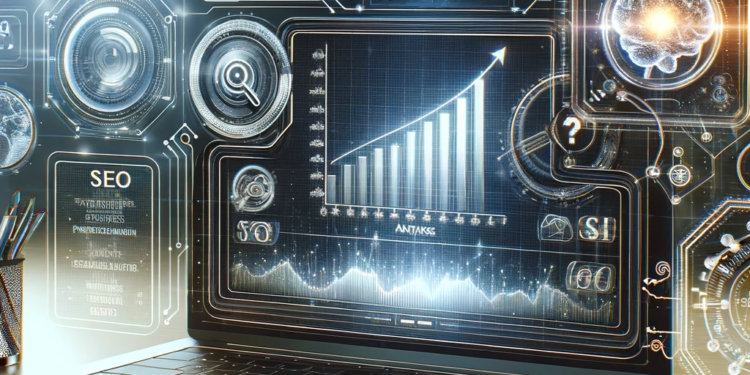In the ever-evolving realm of digital marketing, two key players have emerged as game-changers: Search Engine Optimization (SEO) and Artificial Intelligence (AI). This article delves into how these technologies are revolutionizing online marketing, offering invaluable insights for businesses looking to thrive in the digital age.
SEO has long been the backbone of digital marketing strategies, with its primary goal being to improve a website’s visibility in search engine results. In recent years, the integration of AI into SEO practices has further transformed this landscape. AI algorithms can analyze user behavior, search patterns, and preferences, allowing for more targeted and effective SEO strategies. This synergy of SEO and AI not only enhances user experience but also drives more organic traffic to websites.
How artificial intelligence AI is changing the online marketing landscape?
AI’s role in SEO is multifaceted. One significant aspect is its ability to process and analyze large volumes of data at an unprecedented speed. This enables marketers to quickly identify trends, adjust strategies, and stay ahead of the competition. Additionally, AI-powered tools can optimize website content, ensuring it aligns with the latest search engine algorithms and user preferences.
The impact of AI on SEO is particularly evident in keyword optimization. Traditional keyword strategies focused on specific, often repetitive phrases. However, with the advent of AI, there’s a shift towards understanding the intent behind searches. This results in more natural, conversational content that aligns with the way users actually search for information online.
How AI is changing online marketing and SEO?
Another critical area where AI aids SEO is through personalized user experiences. By analyzing user data, AI can tailor content to individual preferences, leading to higher engagement rates. This personalization extends beyond content to include personalized email marketing campaigns, product recommendations, and user-specific web experiences.
The integration of AI in SEO also brings challenges, particularly regarding the constantly changing algorithms of search engines. Marketers must continuously adapt their strategies to align with these updates. Additionally, there’s an increased need for technical expertise to effectively implement and manage AI-powered SEO tools.
In conclusion, the fusion of AI and SEO is transforming digital marketing. It provides businesses with powerful tools to enhance their online presence, engage with their audience more effectively, and stay competitive in the digital marketplace. To capitalize on these advancements, businesses must stay informed about the latest trends in AI and SEO, invest in the right tools, and be willing to adapt their strategies to the dynamic digital environment.


















